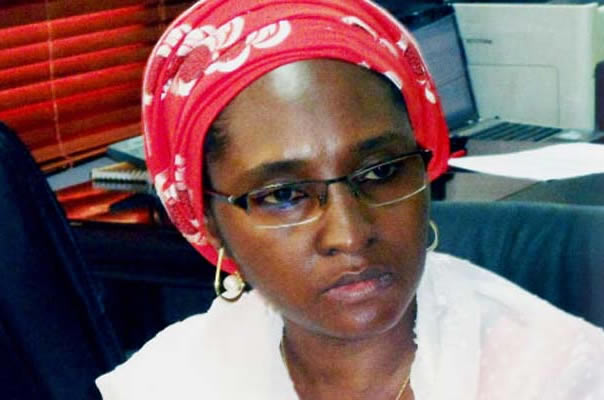The Federal Government has indicated that its budgets require extensive deficit funding through borrowings to spend its way out of recession.
The government also indicated that the streak of borrowings would continue in the short-to-medium term.
Nigeria’s total debt stood at about N22.4 trillion as at last year and the federal government’s 2019 budget plans to borrow additional N2.1 trillion to finance its budget deficit during the fiscal year.
Finance Minister, Mrs Zainab Ahmed, who gave these indications in Lagos last weekend acknowledged that debt profile of the country and the continued borrowings are of concern to many Nigerians, explained that the measures were integral part of the Economic Recovery and Growth Plan, ERGP, designed by the present government to pull the economy out of recession and put it on the part of sustained growth.
She stated: ‘‘We knew that revenues were short and were going to be short in the short-to-medium term, and we determined that if we allow our country to stay too long in the recession we will slip into depression and that is not a picture that anybody should contemplate for an economy the size of Nigeria.
‘‘So we said we must spend our way out of this unfortunate occurrence, and the only option we have was to borrow and when we borrow, the borrowing was designed specifically to be spent for major infrastructure projects and other capital projects.’’
However, mindful of the debt concern, Ahmed said ‘‘Debt Management Office has designed a debt management strategy which was meant to reduce the debt service ratio which is the major concern that we have now.’’
She stated further: ‘‘Our debt is still at a sustainable basis but because revenues are short, we are stressed in the sense that we prioritise the payment of salaries and we prioritise the payment of debts. So it means other sectors of the economy take a hit because the revenue is not enough.
‘‘We have very high credit rating because of our discipline in terms of debt servicing.
‘‘And also at 18 per cent to 19 per cent of the GDP we have the lowest debt level compared to all of our contemporary countries. Ghana’s record is today at 60 per cent, South Africa is about 60 per cent as well. Argentina and Brazil are averaging about 50 per cent to 55 per cent. So our debt is not high. We need to actually have a higher debt level for the size of the economy that we have. What we have is a revenue problem which we must address so that the debt service becomes easier for us.’’
Also she indicated that the government is working at rebalancing its borrowings to reduce the servicing burden.
She stated: ‘‘The Debt Management Office has designed a strategy which has been approved by government to rebalance our borrowing, to move away from short term high cost borrowing to longer term lower cost debts. And this rebalancing is being done because as at 2015 the total debt portfolio we had was 80 per cent domestic and 20 per cent foreign. And the domestic debt you know the cost will be as high as 18 per cent in some instances and as short as seven years in other instances.
‘‘We are moving that portfolio and we have now attained 35 per cent-65 per cent ratio between domestic and foreign debt. When we take foreign debt we also place special emphasis on borrowing on concessionary terms- that is borrowing from multilateral agencies like the World Bank, the Islamic Development Bank and the Africa Development Bank.
‘‘So, our portfolio even at the current existing foreign investment is 50 per cent concessionary and 50 per cent commercial borrowings like the Eurobonds which is a bit higher.
‘‘From the World Bank we get interest rate at an average of 3 per cen tbut when we even access either windows we get less than one per cent. And you have tenure that range from 20 to 30 years, it means that our debt service obligation is lightened because the rates are lower and also the period is longer. So, we will continue to do this.’’

